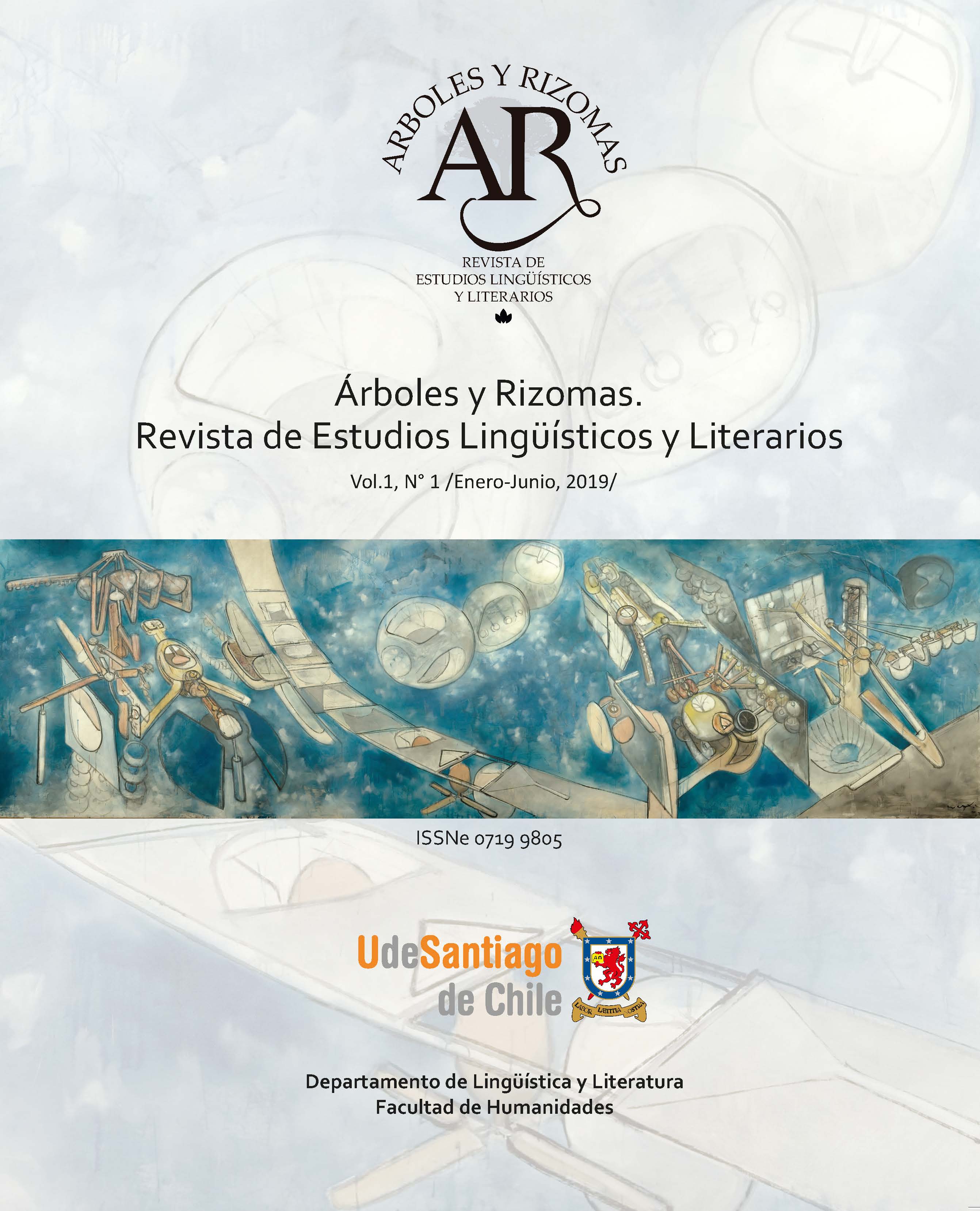Language policies in Brazil and the epistemology underlying the selection of foreign language textbooks
DOI:
https://doi.org/10.35588/ayr.v1i1.3774Keywords:
language policies, EFL textbooks, secondary education, PNLDAbstract
The aim of this paper is to discuss language policies in Brazil, especially in relation to the way they are implemented in the guidelines for the selection of textbooks for the teaching and learning of English as a foreign language (EFL). To subsidize the reflection herein proposed, the study analyzed the main principles and set of criteria used by the National Textbook Program (PNLD) to assess the textbooks designed for Brazilian secondary education. The results of the qualitative analysis carried out revealed a straightforward connection among modern foreign language learning policies in Brazil and the epistemology underlying the evaluation and choice of textbooks. The study concludes that a wider perspective on EFL teaching in Brazil is necessary, taking into account the need for the development of students' speaking skills required in the exercise of a global citizenship.
Downloads
References
Antunes, A., & Padilha, P. R. (2010). Educação cidadã, educação integral: fundamentos e práticas. São Paulo: Instituto Paulo Freire.
Calvet, L.J. (2007). As políticas linguísticas. São Paulo: Parábola.
Da Silva, L. G.; Sarmento, S. (2015). A escolha do livro didático de língua estrangeira do Programa Nacional do Livro Didático. Revista Horizontes de Linguística Aplicada, 14(1), 173-214.
De Araújo, M. Z. F.; Dos Santos, J. S.; Difabio, E. H. (2015). Políticas linguísticas, práticas pedagógicas e sustentabilidade na educação. Revista Querubim, 2(26), 43-57. ISSN 1809- 3264
Dos Santos, M. P. (2012). As disciplinas de língua estrangeira moderna no currículo escolar da Educação Básica na atualidade: algumas reflexões. Revista Magistro, 2(1), 37-53.
Finardi, K. R. (2014). The slaughter of Kachru’s five sacred cows in Brazil and the use of English as an international language. Studies of English Language Teaching, 2, 401-411. DOI: 10.22158/selt.v2n4p401
Finardi, K., Prebianca, G. V. V., & Momm, C. F. (2013). Tecnologia na educação: o caso da Internet e do Inglês como linguagens de inclusão. Cadernos do IL, 46, 193-208. DOI: https://doi.org/10.22456/2236-6385.35931
Finardi, K. R., & Tyler, J. R. (2015). The role of English and technology in the internationalization of rducation: insights from the analysis of MOOCs. In: 7th International Conference on Education and New Learning Technologies EDULEARN15 Proceedings, pp. 11-18, Barcelona, Spain. Retrieved from https://library.iated.org/view/FINARDI2015ROL
Finardi, K. R., & Csillagh, V. (2016). Globalization and linguistic diversity in Switzerland: insights from the roles of national languages and English as a foreign language. In: S. Grucza; M. Olpińska; P. Romanowski. (Orgs.). Advances in Understanding Multilingualism. (Vol. 24, 1st. ed., pp. 41-56). Warsaw, Poland: Peter Lang GmbH, International Academic Publishers, Frankfurt am Main.
Finardi, K. R.; Prebianca, G. V V., Schmitt, J., & Andrade, D. (2014). Technology, English language teaching and internationalization at a crossroad: Insights from the analysis of a virtual learning environment in Brazil. In: 7th International Conference of Education, Research and Innovation. ICERI2014 Proceedings, 1, pp. 4295-4304, Seville, Spain. Retrieved from https://library.iated.org/publications/ICERI2014/start/625
Friedman, T. (2005). The world is flat: a brief history of the globalized world in the 21st century. London: Allen Lane.
Gimenez, T., & Passoni, T. P. (2016). Políticas linguísticas e suas consequências não planejadas: o programa “Inglês Sem Fronteiras” e suas repercussões nos cursos de Letras. Calidoscópio, 14(1), 115-126.
Lei n° 9.394, de 1996. Estabelece as diretrizes e bases da educação nacional. Brasília, DF, Brasil. 20 de dezembro de 1996.
Lenoir, Y. (2006). Três interpretações da perspectiva interdisciplinar em educação em função de três tradições culturais distintas. Revista E-Curriculum, São Paulo, 1(1), 2005. Retrieved from http://www.pucsp.br/ecurriculum
Ministério da Educação/Semtec. (1999). Parâmetros Curriculares Nacionais para o Ensino Médio. Brasília, Brasil: Author.
Ortiz, R. A., & Finardi, K. (2015). Social inclusion and CLIL: evidence from La Roseraie. In Proceedings of the 8th International Conference of Education, Research and Innovation, pp. 7660-7666, Sevilla, Spain. Retrieved from https://library.iated.org/view/ORTIZ2015SOC
Passoni, T. P., & Luz, J. G. (2016). Política e planejamento linguísticos no Brasil: levantamento de orientações curriculares para o ensino de línguas estrangeiras. ReVEL, 14(26), 217-240.
Passoni, T. P., & Gomes, E. A. (2016). Políticas e planejamento linguístico: mapeamento das pesquisas sobre ensino de línguas modernas no cenário nacional. ReVEL, 14(26), 241-270.
Ramos, M. (2008). A Concepção do Ensino Médio Integrado. Mimeo: Pará, Secretaria de Estado da Educação.
Resolução CNE/CEB n. 2. Dispõe sobre as Diretrizes Curriculares Nacionais para o Ensino Médio de 2012 (BR.). Retreived from: http://pactoensinomedio.mec.gov.br/images/pdf/resolucao_ceb_002_30012012.pdf.
Rocha, S. J. S. da. (2013). Interdisciplinaridade: possibilidades na prática curricular. In J. C. de Azevedo, & J. T. Reis (Orgs.). Reestruturação do ensino médio: pressupostos teóricos e desafios da prática (pp. 139-164). São Paulo: Fundação Santillana.
Sarmento; S., & Goulart Da Silva, L. (2016). Brazilian textbook program and implications for the teaching of English in Brazilian public schools. In: K, Finardi (Org.). English in Brazil: views, policies and programs. Eduel, 145-172.
Sarmento, S. (2016). REVEL NA ESCOLA: programa nacional do livro didático de língua estrangeira. ReVEL, 14(26), 20-31.
Secretaria de Educação (1998). Parâmetros Curriculares Nacionais: Fundamental. Brasília, Brasil: Author.
Tilio, Ro. (2014). Língua estrangeira moderna na escola pública: possibilidades e desafios.
Educação & Realidade, 39(3) 925-944. https://dx.doi.org/10.1590/S2175-62362014000300016
Tormena, T. de Alencar. (2007). Política lingüística implícita na virada do século XXI: o programa nacional do livro didático. (Dissertação Mestrado em Lingüística) - Universidade de Brasília, Brasil.
Downloads
Submitted
2019-03-13Published
Issue
Section
License
Copyright (c) 2019 Gicele Vieira, Kyria Rebeca Finardi

This work is licensed under a Creative Commons Attribution 4.0 International License.






